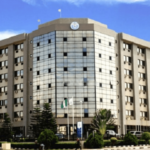With an abundance of sunlight and a growing need for sustainable energy solutions, Africa is witnessing a significant surge in solar energy adoption to address energy deficits, promote economic development, and reduce reliance on fossil fuels.
However, coming along with the growth of solar energy in Africa are both investment opportunities and challenges for businesses, governments, and investors.
The Growth of Solar Power in Africa
Africa’s energy landscape has long been characterized by insufficient access to electricity, especially in rural areas. According to the International Energy Agency (IEA), more than 600 million people across the continent still lack access to reliable electricity.
Solar power has emerged as a critical solution to this challenge due to Africa’s geographical advantage. The continent receives some of the highest solar radiation in the world, making solar energy an ideal resource to meet growing demands for electricity.
- Advertisement -
Countries such as South Africa, Kenya, and Egypt have taken the lead in solar energy deployment, with large-scale solar farms contributing significantly to their national grids.
In South Africa, the Renewable Energy Independent Power Producer Procurement Programme (REIPPPP) has driven the development of several solar projects, attracting foreign investment and creating job opportunities.
Meanwhile, Kenya’s focus on off-grid solar systems has revolutionized energy access for rural communities, providing affordable and clean electricity to millions of households.
Investment Opportunities
Solar energy projects in Africa provide both local and international investors with opportunities for high returns. The continent’s untapped solar potential, coupled with increasing government support for renewable energy, makes it an attractive market for investment.
One of the most promising areas for investment is off-grid solar systems. These systems have gained popularity in rural areas where grid access is limited or nonexistent.
- Advertisement -
Companies such as M-KOPA in Kenya and BBOXX in Rwanda have developed innovative pay-as-you-go solar systems, allowing low-income households to access affordable electricity. These models have not only improved energy access but also created scalable business opportunities for startups and investors.
Additionally, the global shift towards clean energy has opened new avenues for Africa to participate in the carbon market. African countries, with their relatively low carbon footprints, can generate carbon credits through renewable energy projects like solar farms. These credits can be sold to companies in developed countries seeking to offset their emissions, creating a new revenue stream for African nations and businesses involved in solar energy projects.
For instance, countries like Kenya and South Africa have already begun generating carbon credits from solar energy projects, contributing to the global carbon market.
In June 2023, companies from Saudi Arabia purchased 2.2 million tonnes of carbon credits from projects in Kenya, Egypt, Rwanda, and South Africa. These credits, priced at $6.27 per metric ton, were generated through renewable energy and tree-planting initiatives.
Challenges in Solar Energy Expansion
One of the primary challenges is the lack of infrastructure. Many African countries struggle with inadequate transmission and distribution networks, which limits the ability to integrate large-scale solar projects into the national grid.
Regulatory barriers pose another significant challenge. The absence of robust policy frameworks for solar energy development also discourages long-term investment. For example, inconsistent regulations on power purchase agreements (PPAs) and tariff structures have created uncertainty for investors in several African markets .
While the initial costs of solar energy projects have decreased over the years, financing large-scale projects still requires significant capital. Many African governments and local businesses lack the financial resources to fund such projects, and attracting foreign investment is often complicated by perceived risks associated with political instability and currency fluctuations.
Moving Forward
International cooperation and support from development banks and private investors are essential to overcoming these challenges. Several international organizations, including the African Development Bank (AfDB) and the World Bank, have launched initiatives to promote solar energy development in Africa by providing grants, loans, and technical assistance to governments and businesses.
Meanwhile, at the recent Nigeria Energy Exhibition themed ‘Breaking Barriers in the New Energy Era: Clean, Reliable, and Sustainable,’ Nigeria’s Executive Director and Chief Financial Officer, Samuel Nwanze, has suggested the adoption of innovative financing mechanisms, such as green bonds and blended finance, to accelerate the development of solar and other renewable energy projects.
Nwanze outlined several key areas requiring investment to achieve Nigeria’s energy transition goals, including large-scale renewable energy projects, off-grid and mini-grid solutions for rural areas, and decarbonizing the power sector.
In conclusion, the solar energy sector offers attractive investment opportunities, particularly in off-grid systems and carbon credit generation. However, infrastructure limitations, regulatory barriers, and financing challenges must be addressed to unlock the full potential of solar power in Africa.










